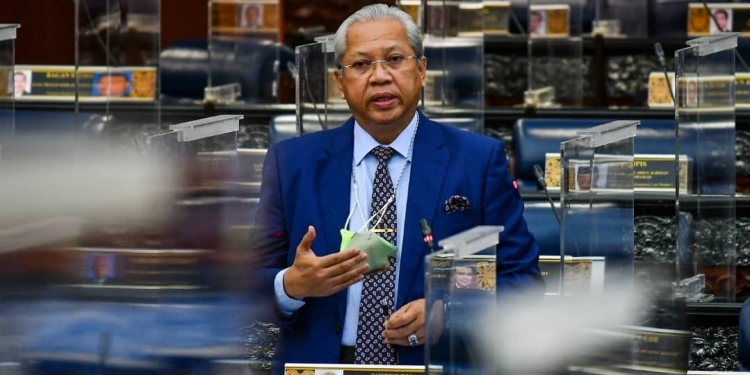Communications and Multimedia Minister Tan Sri Annuar Musa told parliament that the government aims to make 5G services more affordable than 4G through Digital Nasional Berhad (DNB), a state-owned single-wholesale network. He said if the 5G spectrum was to be awarded through an auction, consumers would have to bear the extra cost.
Setakat ini, Tawaran Akses Rujukan (RAO) sedang berjalan. MCMC masih belum memberi kelulusan dalam penetapan harga. MCMC akan memantau pihak DNB dan syarikat telco supaya kata sepakat dalam penentuan RAO tercapai dan rollout 5G dapat diteruskan. pic.twitter.com/8XIatGC8kh
— Annuar Musa (@AnnuarMusa) November 18, 2021
Responding to questions raised by Lembah Pantai MP Fahmi Fadzil on the potential loss of revenue for not auctioning out the spectrum, the Minister said various parties have given different estimations ranging between RM6 billion to RM15 billion. Annuar Musa explained that DNB has been given the mandate to rollout 5G with an approach that’s more viable in terms of technology and cost. He said if Malaysia went ahead with the auction process, it will increase cost of aquisition and eventually that extra cost will be passed back to the consumer.
He mentioned that the recent Multi-Operator-Core-Network (MOCN) integration test with five telcos demonstrates DNB’s ability to deploy 5G efficiently at a lower cost. With the MOCN implementation, mobile network operators will share a single tower infrastructure to reduce duplication. He said in other countries, most MOCN models involved two or three telcos and Malaysia is the first to connect up to 6 telcos for 5G.
Although 5G is a new technology, Annuar Musa said the government aims to make 5G more affordable than 4G. He shared in Parliament that 5G would cost RM3 to RM4 per Megabit, without providing additional details such as volume and duration. The Minister also said concerns about the government incurring costs do not arise as the 5G project will be funded by the private sector instead of using public funds.
Annuar Musa also said the pricing isn’t determined by DNB alone and it has to be negotiated with the telcos along with the Malaysian Communications and Multimedia Commission (MCMC) as the mediator. He shared negotiations to finalise the reference access offer (RAO) which include wholesale pricing is still ongoing and it has to be approved by the MCMC.
DNB has the ambitious goal to launch with 500 5G sites around Kuala Lumpur, Cyberjaya and Putrajaya by the end of this year with a target to hit 80% population coverage by 2024. Malaysia is currently behind its neighbours such as Singapore, Thailand and Indonesia in the 5G race.
A recent report by Reuters indicating that no telcos have accepted DNB’s wholesale agreement has raised concerns if Malaysia will be able to launch 5G services before the new year. DNB has refuted the claims as inaccurate as they are still finalising the RAO. However, the RAO can only be finalised if the telcos are on the same page and DNB has not provided a clear deadline to firm up an agreement with the telcos. DNB has insisted that the telcos will pay less for 5G through the wholesale agreement compared to what they are spending now on their existing 4G network. They also promised to make their 5G wholesale pricing public as part of its pledge for transparency.
Besides pricing, the biggest question is how will the DNB ensure quality and reliability of service for telcos and the end-consumers. The single-wholesale-network and single-vendor approach is seen as a risky move and it has been criticised as a potential single-point of failure.
[ IMAGE SOURCE ]








